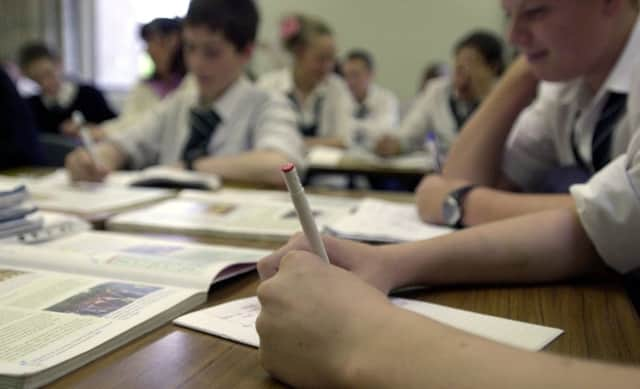Firm which delivers baseline assessment of primary pupils says feedback from schools has been 'overwhelmingly positive'


Early Excellence was one of three providers chosen by the Government to pilot a new test or assessment of children in their first year of education in 2015/16.
The small firm, based near Huddersfield, developed a system which meant schools did not have to sit a formal test or take pupils or teachers out of lessons. And in a new report it says this was a key reason why it was chosen by so many schools. Last September more than two-thirds of schools nationally - 12,557, opted for the Early Excellence system.
Advertisement
Hide AdAdvertisement
Hide AdThe idea of the baseline assessment is to provide a measure of the ability of each year group starting primary school. This can then be used to judge the impact the school is having on these pupils’ progress in future years.
However it has attracted oppposition from the early years education sector and from teaching unions. Earlier this month the National Union of Teachers (NUT) and the Association of Teachers and Lecturers (ATL) published a report which said some children were being left tearful and frustrated by the new literacy and numeracy checks, which risked harming youngsters’ self-esteem and their future education.
Around 2,000 schools in England did not administer the tests - and the unions urged more to follow suit. The report said that only 7.7 per cent of union members polled saying the data gathered during the baselines assessment was an accurate and fair way of assessing children.
Early Excellence’s founder Liz Marsden said: “We agree with those who say that formal testing is not the right approach for children when they start school. There are no tests involved in the Early Excellence approach to baseline assessment.
Advertisement
Hide AdAdvertisement
Hide Ad“We believe that is why more than 70 per cent of schools have chosen to use our model.”
She said feedback from 30,000 people across 12,000 schools had been overwhelmingly positive. “Our model is focussed on settling children in and getting to know them through observations and interactions of self-initiated play and small group activities. Teachers make observations and use this information to plan next steps in children’s learning and to track the progress of children. This approach is already good practice in most schools.”
A new report by Early Excellence, which is being sent to schools tomorrow, says “the lack of a test or pre set tasks” and the fact that children and teachers were not required to leave the classroom were among key reasons for schools choosing the Early Excellence system. The report says almost all of schools had rated the company’s training, support materials and assessment process as good or excellent.
Libby Wheildon, headteacher of Grassington CE Primary said: “I believe that the data we have received matches our pupils exactly, and makes for the most useful starting point to inform planning for the development of each child, that we have ever had.”
Advertisement
Hide AdAdvertisement
Hide AdThe baseline assessment formally starts in 2016/17. Howevever it has not yet been announced what form it will take or whether Early Excelence will be one of the providers. A Department for Education spokesman said a decision would be announced “in due course.”
Early Excellence was started in the late 1990s by former head teacher Liz Marsden and has been at the forefront of the new system after its bid to run the assessments for the Department for Education was successful.
It is one of three bidders chosen by the DfE to offer baseline assessments to schools. Around two-thirds of primary schools nationally have chosen Early Excellence’s system.
It does not involve any formal test but does require teachers to make more than 40 judgements about each pupil.
Advertisement
Hide AdAdvertisement
Hide AdSchools do not have to take part in the baseline assessment but those which do will be judged by the Department for Education on the progress they make with pupils from their starting point in reception.
Schools which do not take part in the baseline assessment will just be judged on their results in Standard Assessment tests - regardless of the starting point of their pupils.